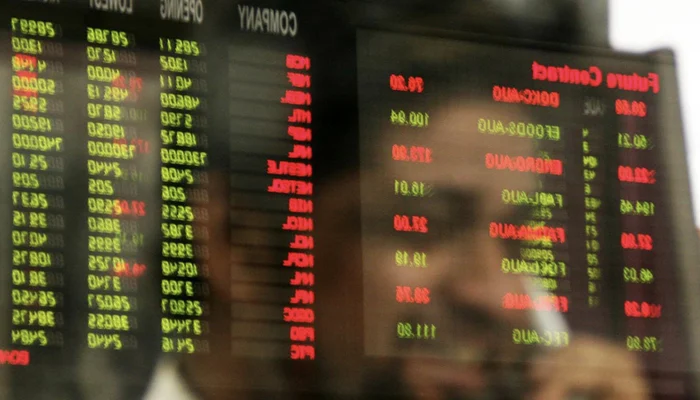KARACHI, June 22(ABC): The Pakistan Stock Exchange’s (PSX) benchmark KSE-100 index opened in the green on Wednesday, continuing its momentum from the previous day and soaring more than 100 points in the first hour of trading, just hours after the Islamabad and the International Monetary Fund (IMF) reached an understanding on the federal budget.
According to the PSX website, the index reached 42,880 by 9:43am, up nearly points 300 points. However, later, the index shed some of its gains and was trading at 42,530.21 points at 11:44am.
The optimism came after Pakistan and the IMF evolved a “broad agreement” on the budget for the fiscal year 2022-23 to revise upward the Federal Board of Revenue (FBR) target and slash the expenditures to achieve a revenue surplus in the next fiscal year.
Speculation about the end to the prolonged economic turmoil instilled optimism among investors, who eventually opted to cherry-pick stocks at attractive valuations across the board.
Speaking to Geo.tv, BMA Capital Director Saad Hashemy said following the agreement with the IMF, investors’ primary concern regarding external account funding will end which will give a major boost to their confidence.
He added that the market will maintain the growth momentum as the Pakistani currency will now strengthen against the US dollar which will also add to the list of positive economic developments.
However, the analyst was of the view that the recovery percentage of the benchmark KSE-100 depends on some factors which include:
- Exact details of the Pakistan and IMF ‘broad agreement’
- The direction of commodity prices in the international market
“Valuations are very attractive at the moment and PSX may recover massively; however, aforementioned factors will play a key role in setting the direction of the market,” he said.
Pakistan-Kuwait Investment Company Head of Research Samiullah Tariq also said that the stock market has more space for recovery and can recover around 7-8%.
Although the “broad agreement” is short of a staff-level pact, it may help soothe markets and end a four-month-long period of uncertainty that took a heavy toll on financial markets, unleashing a wave of inflation and eroding the confidence of markets and investors.

